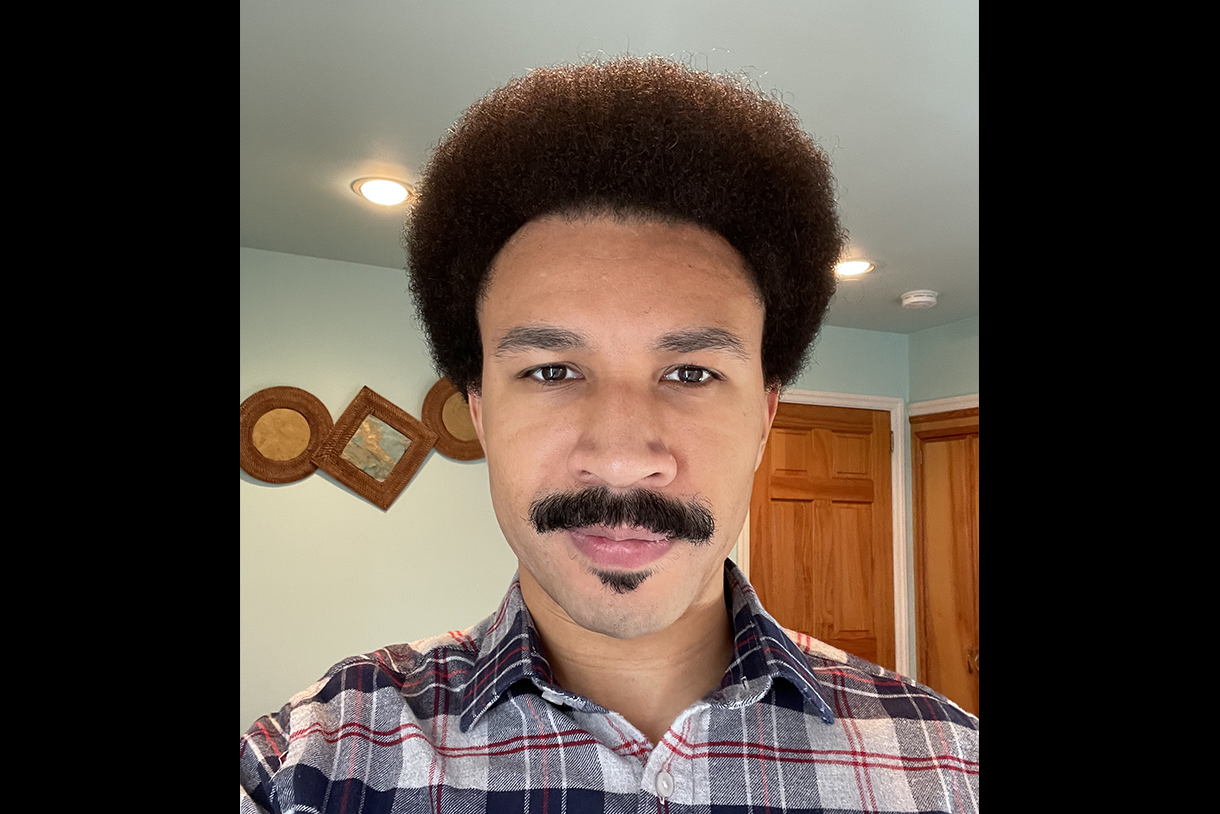Alum Jacob Mooney Lands Job at Pioneering Interactive Trading Card Company

Like any good game designer, Alum Jacob Mooney ’13 puts his career advice in gaming terms.
“Keep rolling the die,” he says. “Because if you have the time and energy to keep rolling the die, you will eventually get what you want”
Or in other words: Persistence pays off.
Mooney, a Game Design major, knows a lot about persistence because it’s what kept him in the game of gaming until his die eventually landed on the right number: A job as a game designer at Wizards of the Coast where he works on the OG of interactive trading card games — Magic: The Gathering.
“They created that genre,” Mooney says. “It's pretty prestigious and means a lot to me personally. I feel very privileged to work here.”
At Wizards of the Coast, Mooney designs Magic cards, but primarily reviews the work of other designers and provides creative feedback on thousands of trading cards each year. Cards that are little games themselves. He advises designers on how to better achieve gaming goals and create greater appeal.
While he enjoys his current position and respects the company he works for, the journey to now required many die rolls.
Mooney first fell in love with games in grade school playing the video game The Legend of Zelda: Majora's Mask. In the video game, the main character wears a variety of masks, letting him take on different powers, including shapeshifting into other types of people. He found the game inspiring, but it wasn’t until years later that, when pressed to explain why that particular game resonated with him so much, he realized that the game spoke to him and his experiences as a biracial person. That recognition only deepened his love and appreciation for the power of games.
But when Mooney came to Chicago from New York to major in Game Design and minor in Fiction Writing at Columbia, he wasn’t yet entirely convinced gaming was for him. In fact, what attracted him most to Columbia: If game design didn’t work out, Columbia offered plenty of other creative disciplines to pursue. By coming to Columbia, how could he lose?
But game design stuck. And at Columbia, Mooney started to build a network of friends that would eventually lead him to game-industry jobs after graduation at companies like Jellyvision Labs, Deep Silver Volition, Jackbox Games, and Level Ex.
In developing a game with a large team as a senior year project, Mooney developed the soft skills that would help him work effectively in those jobs. As the project lead, he learned to ask and answer the right questions such as how to organize work, how to track tasks, how to ensure all voices are heard, and how to ensure that the team creates a game that is … fun.
“I made a lot of mistakes, and I did some things right,” he recalls. “And I just learned an incredible amount about myself — about how I like to work and about how that is in parallel and in perpendicular with how other people like to work.”
But his biggest takeaway involved how the completed project made him feel and how he would seek that feeling in every job that would follow.
He describes that feeling as having three parts: 1, independence; 2, camaraderie, and 3, accomplishment.
Some jobs he had after graduation hit the mark when it came to recapturing that feeling, some didn’t. But those jobs, the support he received from Columbia friends, and his willingness to stick with it, enabled him to keep rolling that die. And he feels exceptionally lucky to have rolled the die that landed his current job.
Each trading card he helps his company produce can be a game itself. So, while there isn’t that one big rush, like what he first experienced at Columbia, he gets something different but equally as good.
“When a new set of cards is released, it's a ton of tiny little dopamine hits.”